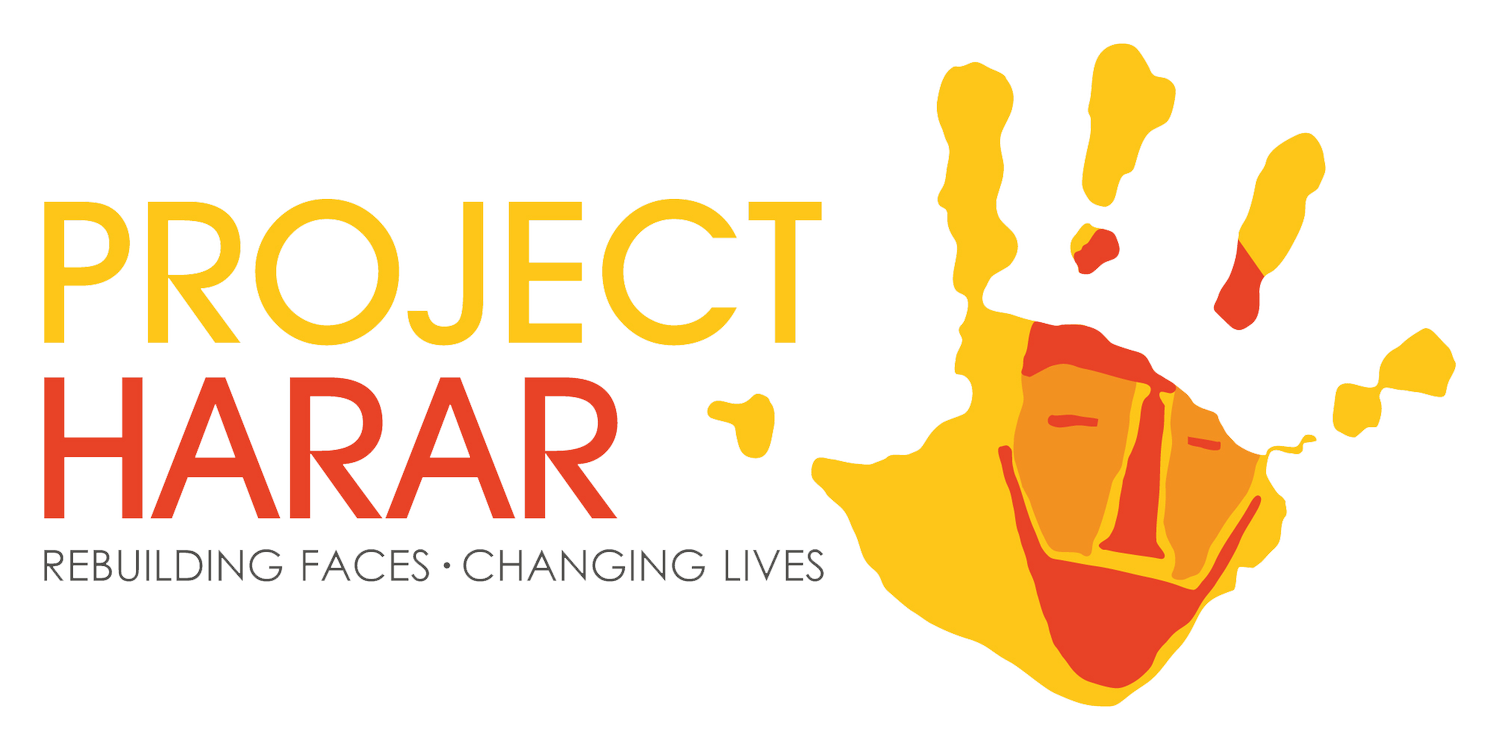SUMEYA’S STORY
At just one year old, Sumeya and his mother, Samiru, arrived at our program at Asella Hospital seeking surgery for Sumeya’s cleft lip. Samiru, who works as a farmer in the Arsi Zone, not only cares for Sumeya but also has three other children. Despite the challenges she faces, Samiru’s determination to seek treatment for her child demonstrates her unwavering commitment to providing a better future for Sumeya and her family.
Sumeya and his mother before cleft lip surgery.
Samiru shared her experience, “I used to live in a family house; my family labelled me a cursed woman and said the gods sent me this child. Nobody touched any family items I use such as utensils, buckets, and cups. It was very embarrassing and so I relocated and kept indoors.” Samiru’s story sheds light on the deep-rooted stigma that mothers face in relation to their child’s cleft lip condition. In many instances, mothers are unfairly blamed and labelled as “cursed” or responsible for their child’s condition, creating a pervasive sense of shame and social isolation. This stigma manifests in various ways, including the belief that the child’s condition is a result of divine punishment or a mark of misfortune.
The consequences of this stigma are far-reaching, as illustrated by the reluctance of family members to touch or use household items used by the mother and her child. This exclusionary behaviour not only exacerbates the embarrassment experienced by the mother but also reinforces the idea that she and her child are somehow unclean or tainted. The weight of this societal judgement often compels mothers to make difficult choices, such as relocating and isolating themselves from their community, in an effort to protect themselves and their children from further stigma.
Samiru goes on to tell us about the love and support she has received from her husband. “My husband accepted the baby wholeheartedly and assured me of his support. He helps to feed him and buys everything we need. Truly, he does everything for us and has helped me cope with the baby’s condition. Really he is a wise and sociable man”. Having a supportive partner can make a significant difference in a mother’s journey, as it fosters a sense of shared responsibility and alleviates the burdens often associated with raising a child with a cleft lip. In Samiru’s case, her husband’s involvement goes beyond emotional support, extending to practical aspects of caregiving such as feeding and providing for their child’s needs.
Sumeya and his mother after surgery.
Raising awareness and educating people about cleft conditions can play a vital role in shifting misconceptions and judgments that hinder husbands and family members from empathising and providing support to mothers and their children. By dispelling myths and fostering understanding, this awareness can pave the way for greater empathy, acceptance, and a collective effort to uplift and empower families affected by cleft conditions.
Sumeya’s mother proceeds to explain the difficulties he has when it comes to interacting with other children in the community. Stating “whenever my child seeks to play with his peers, his playmates escape because of his cleft lip. They see him as unique/strange and don’t want to play with him. It is offensive.” Children with cleft lips often face significant social difficulties, as they are frequently excluded and rejected by their peers due to the perceived differences associated with their condition, resulting in a sense of isolation and emotional distress. The social difficulties experienced by children with cleft lips often extend to education, as they are frequently unable to attend school, depriving them of essential opportunities for learning, socialisation, and development, leading to detrimental effects on their overall growth and well-being.
“Now I am happy with the treatment given to my child. For the future my child can go to school and play with his peers without any problem like other children do.”
Sumeya and Samiru’s story serves as a powerful reminder of the significance of support within the context of cleft lip conditions. It underscores the transformative influence that a loving, supportive partner, whether it be a husband, family member, or friend, can have on a mother’s journey, providing crucial emotional and practical assistance that empowers her to navigate the challenges and nurture a positive environment for her child.



